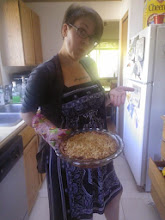Dear Mr. President,
"She was a foreigner, middle-class and white and protected by her heredity whether she wanted protection or not." You wrote this, of course, about your Mother in Indonesia when you were a young boy, but you might have written this sentence about me. I had wanted to delay, as long as possible, the mention of my experiences abroad in these letters, if only because I fear the stigma attached to the region would somehow undermine the opinions I hold.
Two summers ago I was fortunate enough to travel through the West Bank. I was not there as an activist, or as a volunteer, though certainly there were elements of each involved in the trip, I went as a tourist. It seems strange, but we Americans are uniquely qualified to consume, offering economic stimulation even when we have no practical skills. At least shopping in Palestine made me feel less guilty. The group I traveled with on a long walk in the footprints of Abraham came from America, Germany, Canada, Brazil and all over Palestine. I was the only white American traveling alone, and felt distinctly this unasked-for protection that you describe. People were so perplexed by my presence there, and I entered the country with far less resistance from the Israelis than my companions, even those with American passports, due to their Arab or Indian heritage.
My suburban, middle-class upbringing in a place like Seattle, where water is excessive and cheap and everywhere, where racial and class tension is muted, where liberalism and its assumed tolerance and respect for differences in all of us is wholly unremarkable, could not have prepared me for the injustice, the institutionalized racism, and the struggles of everyday life that I witnessed in Palestine.
Mr. President, I suspect that many of my letters this year will be about Palestine and our policies toward that part of the world. I did not expect to find myself connecting so personally with your own family's experiences abroad, or I would not have mentioned it now. The way you describe power, the nakedness of it in places like Indonesia and its hidden, more modest (perhaps, even, more dishonest) manifestations in America, resonates with how I feel about Palestine. I do not see the world as a cast of heroes and villains, a place of good and evil, but instead as a constant struggle with the kind of power you described and those who would abuse it. That imbalance seems to be the cause of human suffering in myriad forms. For now, I will keep reading and wonder how it is that we have come down so decidedly on the side of that power, of the abusers and the oppressors, so many times through our nation's history and, more importantly, every day in Palestine?
Thank you, Mr. President, for thinking about this question.
Respectfully yours,
Kelsey
Subscribe to:
Post Comments (Atom)




No comments:
Post a Comment